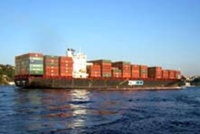India, US vow to increase trade five-fold to $500 bn
23 Sep 2015
India and the United States are looking at a five-fold jump in their annual bilateral trade from the current $100 billion to $500 billion as the two countries work towards further deepening their security and economic cooperation.
 US secretary of state John Kerry and India's minister of external affairs Sushma Swaraj announced this at the end of the first India-US Strategic and Commercial Dialogue in Washington today.
US secretary of state John Kerry and India's minister of external affairs Sushma Swaraj announced this at the end of the first India-US Strategic and Commercial Dialogue in Washington today.
The announcement comes ahead of Prime Minister Narendra Modi's meeting with US President Barack Obama next week.
Apart from reinforcing the commercial and trade relations between the two countries, the first India-US Strategic and Commercial Dialogue co-chaired by US secretary of state John Kerry and India's external affairs minister Sushma Swaraj ended with a joint statement on combating terrorism and India securing access to US technology.
The dialogue also helped the two countries move towards the goal of making their ties the defining relationship of the 21st century, according to Kerry.
Kerry said the US-India relationship is a "bright spot on the international landscape and is one of the most important bilateral relationships in the world."
"President Obama and our entire administration are strongly committed to this relationship, to this friendship.
And President Obama looks forward to meeting with Prime Minister Modi next week in New York," he said at a joint press conference with Swaraj after the meeting here yesterday.
Briefing about the meeting, he said, "We have concluded a very significant memorandum of understanding on energy security, climate change, and clean energy."
"We have renewed our joint commitment to maritime security, international law, and the peaceful resolution of disputes in the Asia-Pacific and Indian Ocean regions," he said, adding that the two countries will implement measures to deepen their cooperation against international terrorism, which has claimed too many lives in both the nations.
Swaraj said the joint statement reiterates commitment of the two countries on common approach against terror groups like Lashkar-e-Taiba, Haqqani network and the D-Company.
"We (India and the US) reiterate that the threat posed by al-Qaeda, Lashkar-e-Taiba, Jaish-e-Mohammad, D-Company (Dawood Ibrahim), Haqqani network and other regional groups undermines stability in South Asia. And we call to Pakistan to bring to justice the perpetrators of the 2008 Mumbai terrorist attack," Swaraj told reporters.
"We strongly condemn the July 27, 2015 terrorist attack in Gurdaspur, Punjab, and August 5, 2015 attack in Udhampur," she said of the terror assaults in India which were carried out by terrorists based in Pakistan.
Swaraj said the joint statement states that the two countries are determined to fight terrorism to the end.
In response to a question, Kerry said the two countries are committed to bringing all their efforts together in this fight against terrorism.
"It is clearly one of the most fruitful, one of the most productive bilateral relationships that I have the privilege to work on," Kerry said.
"We shared our strategic priorities, interests, and concerns on issues of mutual interest, including security and counter-terrorism, confidences in India's Act East policy, and the US rebalance in Asia," Swaraj said.
She said the two sides also talked about creating new substantive underpinnings to deepen bilateral engagement, including in the fields of defense, security, cyber, energy, climate change, science and technology, space, health, and other areas of economic development.
"Our effort in this discussion was that to look at each and every issues from the perspective of enhancing the relationship," Vinay Mohan Kwatra, joint secretary Americas of the ministry of external affairs, told reporters yesterday.
While there were differences on many well-known issues between the two sides, he said, effort was essentially to engage in a manner that strengthens the ties rather than differences holding down the progress of the relationship.
Market access issues, agricultural products and textiles continued to get discussed, he said in response to a question. There was also a broad reference to WTO as well, he said.

















